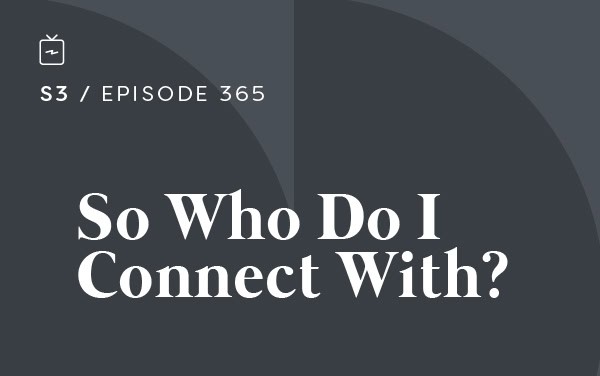
by Kris Oyen | Feb 14, 2022 | Podcast
Podcast: Play in new window | Download
Subscribe to the Recovery Elevator Podcast Apple Podcasts | | More
Episode 365 – So Who Do I Connect With?
Today we have Joshua. He is 36 years old and from North Carolina. His last drink was on October 31, 2020.
https://kalabrand.com/
Highlights from Paul:
Happy Valentine’s Day! The opposite of addiction is connection. Paul shares that reality is a mirror reflecting your inner world. The most important connection we have is the connection we have with ourselves. If we don’t love, treat ourselves with respect or stand up for ourselves, that will appear in our outer world. Connecting with yourself allows you to become your own healer. Once your inner connection/relationship is healthy, that will be reflected in your external connections.
Paul recommends splitting your internal and external actions 50/50. Connect with yourself first (via meditation, journaling, yoga, etc.), then connect externally (Café RE chat, Marco Polo chat, a family member).
Johan Hari’s Ted Talk https://www.youtube.com/watch?v=PY9DcIMGxMs
BetterHelp: www.betterhelp.com/elevator
[10:45] Odette introduces Joshua
Joshua is from North Carolina, loves music, and works as an optician.
“Should” never helped Joshua quit drinking. Focusing on what he wanted from his life helped him shift his thinking and made an alcohol-free life possible.
Joshua’s first drink was a Zima at a party in high school. He was generally a good kid and had a strong desire to belong. He recognized that alcohol did something for him early on before it did something to him. The first time he recalls getting drunk, he felt a euphoric escape. Alcohol was liberating and medicating. In college, a sneakiness appeared in his drinking. He wasn’t aware of alcohol being problematic until 2014.
After divorcing, pent-up resentments led to accelerated drinking for Joshua. His drinking progressed. He attended his first AA meeting in 2017. After several false starts, AA helped him get 18 months of continuous sobriety. He stopped working his program and returned to drinking. He began to observe his drinking, and by Halloween, a dream helped him realize he wanted to be his best, and alcohol wasn’t part of that vision.
Joshua credits AA for helping him and describes AA as binary; he has a realistic view of their history and acknowledges that many options are available for recovery today. Therapy helped him with harm reduction and to be less black and white.
Josh says quitting alcohol is hard, but the complications of drinking make your life exponentially harder. He is happier, more grateful, and knows the perceived benefits of alcohol were a lie. Life still has its ups and downs, which are easier to manage.
Odette’s final thoughts:
You are enough. You are everything you need. You are loved. You are worthy. You are whole and complete, and you deserve a peaceful life.
Upcoming events, retreats, and courses:
- You can find more information about our events
Sponsors:
BetterHelp: www.betterhelp.com/elevator
Affiliate Link for Amazon: Shop via Amazon using this link.
The book, Alcohol is SH!T, is out. Pick up your paperback copy on Amazon here! You can get the Audible version here!
Resources:
Connect with Cafe RE – Use the promo code OPPORTUNITY to waive the set-up fee.
Recovery Elevator YouTube – Subscribe here!
Sobriety Tracker iTunes
“Recovery Elevator –lighten up!
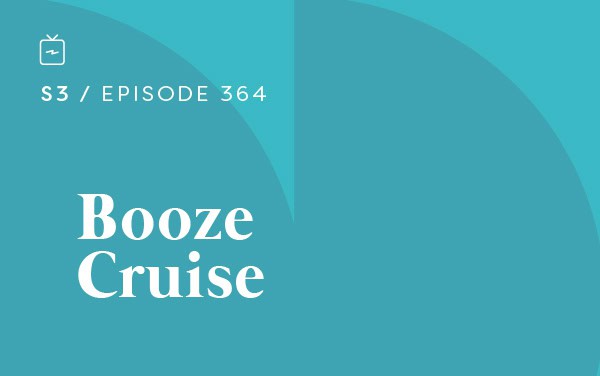
by Kris Oyen | Feb 7, 2022 | Podcast
Podcast: Play in new window | Download
Subscribe to the Recovery Elevator Podcast Apple Podcasts | | More
Episode 364 – Booze Cruise
Today we have Ben. He is 41 from England and took his last drink on September 26, 2021.
Exact Nature exactnature.com Code: RE20
Highlights from Paul
Paul shares some highlights from Recovery Elevator’s recent trip to Costa Rica. The group wound up on a booze cruise, remained sober, and had more fun dancing, swimming, and connecting than others who were drinking. The group trusted Paul and had a blast.
Anxiety and depression often happen when we feel disconnected. Paul described driving through Montana in a location where people waived to one another on the road. That simple gesture was a form of mini-connection; it feels good and elevates dopamine levels in a healthy way. When you perform an act of kindness, it always provokes another. Paul suggests waiving at someone at a stoplight and reminds us that the opposite of addiction is connection.
Better Help: www.betterhelp.com/elevator
[11:29] Ben looks at not drinking as an opportunity, not a punishment. The work inspires him, and it feels like a reward.
Ben is a musician; he’s single and age 41. He loves reading, movies, exercise, board games, video games and aspires to get into amateur dramatics. He no longer needs alcohol to have fun, experience life, and do the things he can write songs about. His mindset is now hopeful and optimistic vs. trapped and hopeless.
Ben started drinking as a teenager at a party. He was under lots of pressure because he was into rock music, had long hair, and nobody approved. Drinking gave him an escape. He never drank when he played because he enjoyed the euphoria of performing. It was “game on” at the afterparties. He developed an eating disorder, which led to binge eating, drinking, and then starving. Hypnotherapy helped his eating disorder, giving him a sense of peace. Writing down what he ate to address his eating disorder helped Ben identify patterns in his drinking.
As his drinking progressed, it began to impact his performances. He often drank on the tour bus all night and partied into the next day. Anxiety, paranoia, and confusion crept into his daily life. He was constantly looking for something fun and continued drinking to avoid reality. He began drinking alone, which impaired his ability to enjoy music. Consequences began to emerge. Ben explored AA, and he was initially put off by those who continued coming to meetings after decades of sobriety. During his first share, he broke into tears. He was shaken to discover how much alcohol meant to him. His drinking progressed, and he became reckless. At some point, he recognized he was powerless over alcohol.
In 2021, Ben had three scary incidents that involved his work, health, and a friendship. He was scared sober. Initially, it wasn’t difficult. Finding a new addiction or habit was his initial plan. He spent hours playing computer games and was grateful because those hours were time he wasn’t drinking. Ben treats his sobriety like the levels of a computer game, adding new behaviors with each progression.
Odette’s Summary
Odette speaks about “The Happiness Trap,” a book she is discussing with her therapist. It debunks the myth that we are supposed to be happy all the time. The daily actions we take allow us to feel joy, pain, and boredom. Even uncomfortable actions propel us toward a life we want.
Upcoming events, retreats, and courses:
- You can find more information about our events
Resources
Connect with Cafe RE – Use the promo code OPPORTUNITY to waive the set-up fee.
Recovery Elevator YouTube – Subscribe here!
Sobriety Tracker iTunes
Recovery Elevator – embrace the journey of becoming. I love you guys.
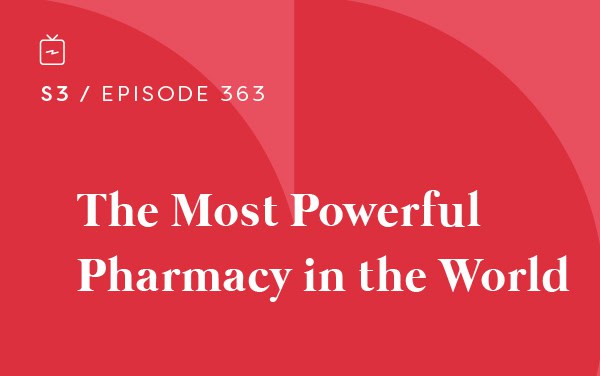
by Kris Oyen | Jan 31, 2022 | Podcast
Podcast: Play in new window | Download
Subscribe to the Recovery Elevator Podcast Apple Podcasts | | More
Episode 363 – The most powerful pharmacy in the world
Today we have Brian. He is 48 years old and from Ohio. His last drink was on March 31, 2019.
For more information about our Denver event, please go here.
Exact Nature www.exactnature.com Code: RE20
Highlights from Paul: How do you leverage the brain to work in your favor?
Acknowledge there is a problem. Make sure your mental energies match your goal. Use the thinking mind to pull up a good memory (vacation, significant accomplishment). The cycle: The more the nervous system is in check, the more you want to do things that bring you joy. The more you do something that brings you joy, the more your nervous system calms down.
Listen to the nature sounds playlist. We forget that we come from nature; we evolved with crickets and blue jays. All you need to do is listen to nature sounds and allow them to calm the nervous system.
BetterHelp: www.betterhelp.com/elevator
[11:19] Odette introduces Brian
Brian has been sober for 1000 days. He is from Cleveland, Ohio, likes mountain biking, the outdoors, art museums, and travel.
Drinking became an issue for Brian after high school. He experimented with drinking, pot, and methamphetamines. He was an addict for a year and eventually went to rehab. He dropped illicit drugs and continued drinking. His family drank, so they wanted him to quit drugs but continue drinking. Brian did everything to excess. He had two failed marriages, and his drinking always led to bad situations. He believed he could control his drinking.
In 2018, Brian started a new job. He blacked out at the end of a training event, and he knew he had to quit. He stopped on April 1 but was a dry drunk. He was always angry. He didn’t know what to do because drinking was always a reward.
Today, Brian listens to podcasts and finds the similarities. He meditates. Regulating his emotions has been a struggle, but it’s getting better. Café Re drove his recovery. His goal is not to be an embarrassment anymore. Brian removed himself from all his prior activities to avoid triggers. Now he follows the 7 Habits, s, lives his values, and sobriety is his number one priority. He appreciates his wife’s support, and they have a solid partnership. After a year of firsts (holidays, anniversaries), he felt stronger in his recovery. He is a better husband, a better stepdad, and his career has progressed.
You may have to say adios to booze if…
If you find yourself crying in the shower, not knowing how you got to your room.
Odette’s final thoughts:
Getting through a year of firsts is a legitimate challenge. Don’t let the images of sobriety being easy or perfect discourage you. Sobriety takes time. It is uncomfortable; it is normal to feel angry; it’s not always fun. Focus on doing the next right thing. It gets better.
Upcoming events, retreats, and courses:
- You can find more information about our events
Sponsors:
Exact Nature www.exactnature.com Code: RE20
BetterHelp: www.betterhelp.com/elevator
Affiliate Link for Amazon: Shop via Amazon using this link.
The book, Alcohol is SH!T, is out. Pick up your paperback copy on Amazon here! You can get the Audible version here!
Resources:
Connect with Cafe RE – Use the promo code OPPORTUNITY to waive the set-up fee.
Recovery Elevator YouTube – Subscribe here!
Sobriety Tracker iTunes
“Recovery Elevator –we took the elevator down; we need to take the stairs back up – I love you guys.”
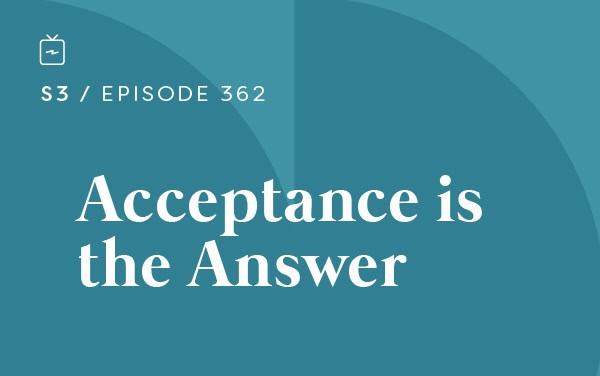
by Kris Oyen | Jan 24, 2022 | Podcast
Podcast: Play in new window | Download
Subscribe to the Recovery Elevator Podcast Apple Podcasts | | More
Today we have Noelle. She is 31 years old and from Colorado. Her last drink was on June 24, 2019.
Highlights from Odette
Odette is working on Acceptance and Commitment Therapy (ACT) with her therapist. ACT encourages people to embrace their thoughts and feelings rather than fighting or feeling guilty for them.
Odette is learning not to shove her feelings away but to accept them and learn not to fuse them. Embracing negative thoughts can propel you into the right thoughts and behaviors.
If I let this thought guide what I can do, will it help me create the life I want? Use the thought if it helps; diffuse it if it’s not helpful.
betterhelp.com/elevator
[8:54] Kris introduces Noelle
Noelle has been sober for 2.5 years – over 900 days! She is an engineer and works with her brother. She has a Doberman and loves hiking, skiing, and getting outside to enjoy Colorado.
Noelle had a fake ID at 17 and always thought about how to get alcohol easier. She got into college because of her basketball skills. She got a DUI at 18, but there were no consequences. She and others justified her drinking because she excelled academically, professionally, and in basketball. She drank to get drunk. She crashed her truck for her 2nd DUI, and the consequences didn’t faze her yet. She continued to excel professionally. Workaholism and alcoholism went hand in hand for Noelle.
Noelle’s got her third DUI at age 27. She went to jail and had five months of work release and in-home detention. She accepted a TOP 30 under 30 business award, but she wore an ankle monitor during the awards ceremony and slept in a cot in jail that night. Six months later, she stopped drinking. She was a dry drunk; she just removed the alcohol. She had a one-day relapse. The following day she went to an AA meeting. Noelle has now learned that sobriety is about quality vs. quantity. She has a sponsor, is working the steps, and spiritual elegance is part of her journey.
At her sponsor’s urging, she wrote a drunkalogue which helped her see the wreckage of her past and the risky behavior. Noelle has learned that you are exactly where you are supposed to be. She is now learning to live in peace with unsolved problems.
Noelle met Odette in April when she was hiking at Zion National Park. Meeting Odette was a higher power “God shot” moment in front of hundreds of people. Recovery Elevator podcasts were critical to her early recovery and AA meetings.
You may have to say adios to booze if…
You get a Denver Business Award journal for the Top 30 Under 30 and sleep in a cot in jail that night.
Kris’s final thoughts:
Kris spoke about the impact that his drinking had on his loved ones. A door opened after a challenging conversation with his wife. Acknowledging her comments, he was scared and hopeless and beginning to face the consequences of his actions. Faith carried Kris through, and he reminds us to do the next right thing. We heal with each step we take.
Upcoming events, retreats, and courses:
- You can find more information about our events
Sponsor: BetterHelp www.betterhelp.com/elevator
Affiliate Link for Amazon: Shop via Amazon using this link.
The book, Alcohol is SH!T, is out. Pick up your paperback copy on Amazon here! You can get the Audible version here!
Resources:
Connect with Cafe RE – Use the promo code OPPORTUNITY to waive the set-up fee.
Recovery Elevator YouTube – Subscribe here!
Sobriety Tracker iTunes
“Recovery Elevator –the door has been opened; let’s walk through this together- I love you guys.”
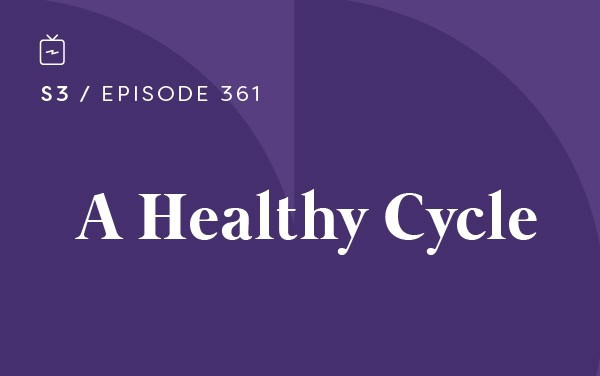
by Kris Oyen | Jan 17, 2022 | Podcast
Podcast: Play in new window | Download
Subscribe to the Recovery Elevator Podcast Apple Podcasts | | More
Today we have Eric. He is 58 years old and from New Jersey. His last drink was on February 10, 2019.
The RE Alcohol Free Ukulele course registration is open! Sign up here.
For more information about our Denver event, please go here.
From Paul: Why is working with the nervous system so important?
The cycle: The more the nervous system is in check the more you want to do things that bring you joy. The more you do things that bring you joy, the more your nervous system calms down.
Listen to the nature sounds playlist. We forget that we come from nature, we evolved with the crickets and blue jays. All you have to do is listen to nature sounds and allow it to calm the nervous system.
[10:03] Odette introduces Eric.
Eric is 58 years old and from New Jersey. He is a teacher. He also enjoys performing in theater as well as teaching theater. For fun he likes hiking and going to the gym. Being in nature is important to him.
He grew up around alcohol and for him it was very normalized. As a kid in high school, he would take beer from his father and drink them on camping trips. In college is where he said his drinking ramped up. He was able to get drunk very fast and he began to black out from time to time.
After two DUIs in the Midwest he took a job in New Jersey and continued drinking. He then received a 3rd DUI and a 4th DUI. But because it was in a different state he skated under the radar and was able to deal with lower ramifications.
February 10, 2018 his mother passed. He thought to him as he was on the plane home “Now the healing can begin”. He’s been learning what that means ever since.
You may have to say adios to booze if…
you are now dealing with your 5th DUI and you still think it’s just a glitch and it’s not a problem.
Odette’s final thoughts:
Don’t put so much pressure on yourself. Get off the rat race and be kind to yourself. Take a moment today and focus on something good. Accept where you are.
Upcoming events, retreats and courses:
- You can find more information about our events
Sponsors:
Exact Nature www.exactnature.com Code: RE20
BetterHelp: www.betterhelp.com/elevator
Affiliate Link for Amazon: Shop via Amazon using this link.
The book, Alcohol is SH!T, is out. Pick up your paperback copy on Amazon here! You can get the Audible version here!
Resources:
Connect with Cafe RE – Use the promo code OPPORTUNITY to waive the set-up fee.
Recovery Elevator YouTube – Subscribe here!
Sobriety Tracker iTunes
“Recovery Elevator –stay awkward and weird, you won’t regret it- I love you guys.”







